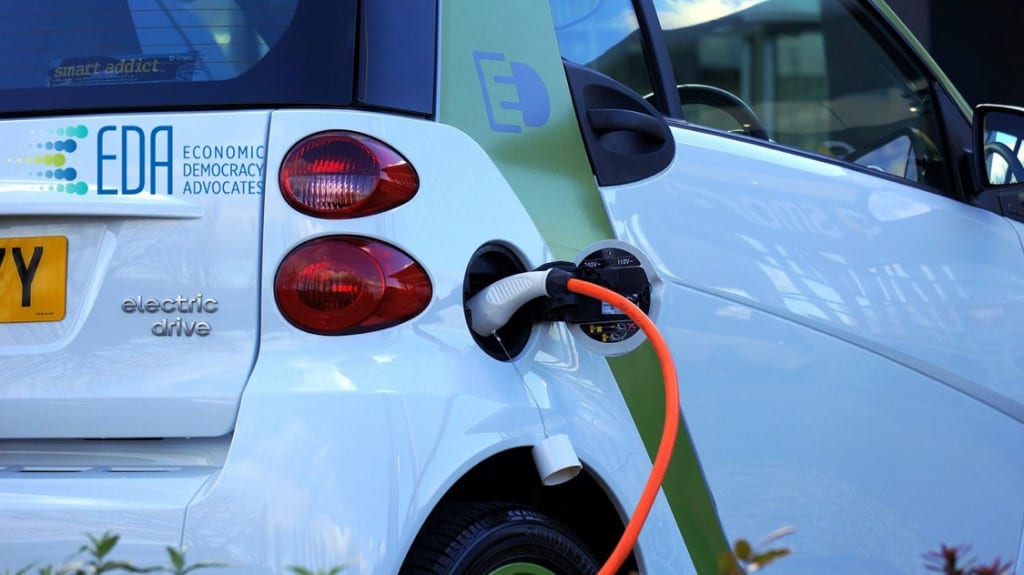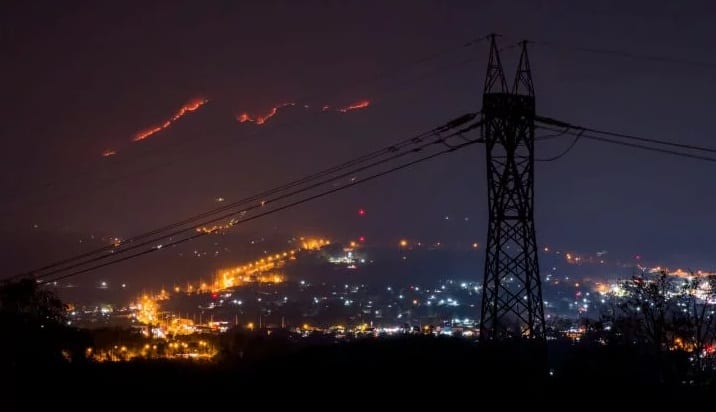The U.S. Conference of Mayors also voted to support quick electrification of vehicles and urged Congress to back the Clean Power Plan and Paris climate agreement.
Scenes like the image above are likely to become more prevalent in urban cities across the US as the US Conference of Mayors has made a commitment to move toward the goals originally outlined in the Paris Climate agreement. In fact, they went so far as to pledge their cities to have adopted 100% renewable energy by 2035. The goal was agreed to in spite of President Trump’s intention to withdraw the US from the Paris agreement.
Their aggressive steps show a real understanding of the importance of breaking away from the lock on use of fossil fuels. Starting with a push to electrify the country’s transportation sector, we’ll begin to see electric vehicles serving municipal governments. This movement will reduce the carbon levels in the atmosphere which is especially a concern in urban environments where there is a high density of vehicles.
This is just one small but significant step toward making the changes that need to be made to continue moving toward a sustainable future. We applaud this action, and look forward to more government officials joining what these Mayors have begun. As Tip O’Neil told us over and over, “all politics is local.” As the Mayors change their own cityscapes, we believe the message will move to a wider embrace throughout the country.

New Orleans Mayor Mitch Landrieu (right) and Michael Bloomberg address the U.S. Conference of Mayors. Bloomberg announced a $200 million grant program to support city initiatives in areas including climate change. Credit: Joe Raedle / Getty Images
As the nation’s mayors closed their annual meeting on Monday in Miami Beach, they sent a clear signal that cities are looking for action on climate change and are eager to fill a policy gap created by the Trump administration.
The United States Conference of Mayors, which includes both Republican and Democratic mayors from cities across the nation, adopted a series of resolutions that are far more assertive than federal climate policy, including a pledge supporting cities’ adoption of 100 percent renewable energy by 2035.
“We are showing the world that cities and mayors can and will lead the transition away from fossil fuels to 100 percent clean, renewable energy,” said Columbia, South Carolina, Mayor Steve Benjamin, a co-sponsor of the resolution, in a statement.
Cities have been pushing for stronger action on climate change for years, but the efforts have taken on new urgency since President Donald Trump took office in January. After Trump announced his intention to withdraw the United States from the Paris climate agreement, more than 200 cities joined with nearly a dozen states and hundreds of businesses to announce that they would remain committed to the goals of the agreement.
The resolutions passed Monday include ones that:
- Urge Congress and the Trump administration to support the Paris Agreement and the Obama administration’s stalled Clean Power Plan, which would cut carbon dioxide emissions from the electricity sector and which Trump has been working to repeal.
- Call for a quick electrification of the nation’s transportation sector.
- Ask Trump and Congress to “develop a comprehensive risk management program to address future flood risks from sea level rise.”
- Support greater investment from all levels of government in wind energy.
- Encourage Congress to reauthorize and fully fund the Energy Efficiency and Conservation Block Grant Program, a defunct federal program that sent money to local governments.
A main theme of the annual meeting of the conference, which represents the mayors of 1,408 American cities, was that local government can take a larger role in shaping American policy on a range of issues, supplanting the federal government.
“We can show America what leadership really looks like,” said New Orleans Mayor Mitch Landrieu, the incoming president of the U.S. Conference of Mayors.
Climate change was a recurring topic throughout the meeting, which took place in one of the cities most vulnerable to sea level rise. Landrieu said there is “near unanimity in this conference that climate change is real and that humans contribute to it.”
On Monday, Michael Bloomberg, the former mayor of New York, used the conference’s closing luncheon to announce a new initiative of his philanthropy that will provide $200 million in grants over the next three years to support city initiatives on major policy challenges, including climate change, education and gun control.
“We’ll expand our work to empower more mayors to lead the fight against climate change so that America can meet the goals it set in Paris, no matter what happens in Washington,” he told the conference.
A move toward renewable energy could be among the most consequential steps taken by cities. According to an analysis by the Sierra Club, which has been working with a group of mayors on the issue, if all the conference’s cities were to adopt 100 percent renewable energy, they could cut carbon dioxide emission by 619 million metric tons, equivalent to the emissions of about 180 coal plants. So far, mayors of 120 cities have signed the Sierra Club’s pledge supporting a transition to using only renewable power.
Article written by Nicholas Kusnetz
Originally published in Inside Climate News


